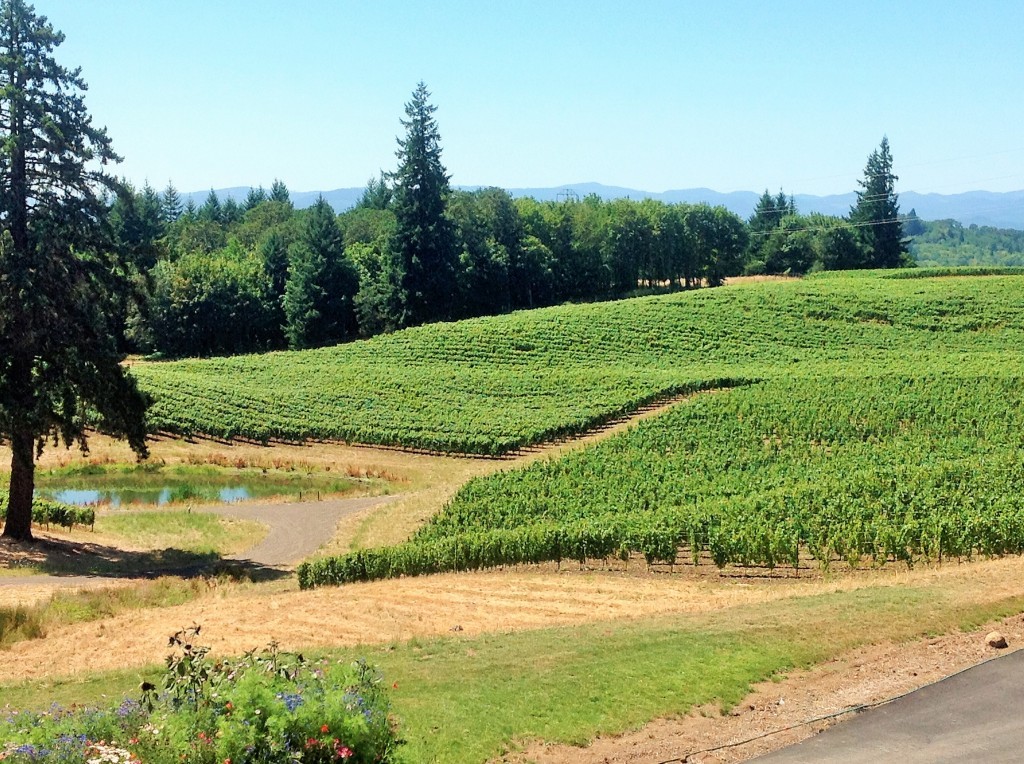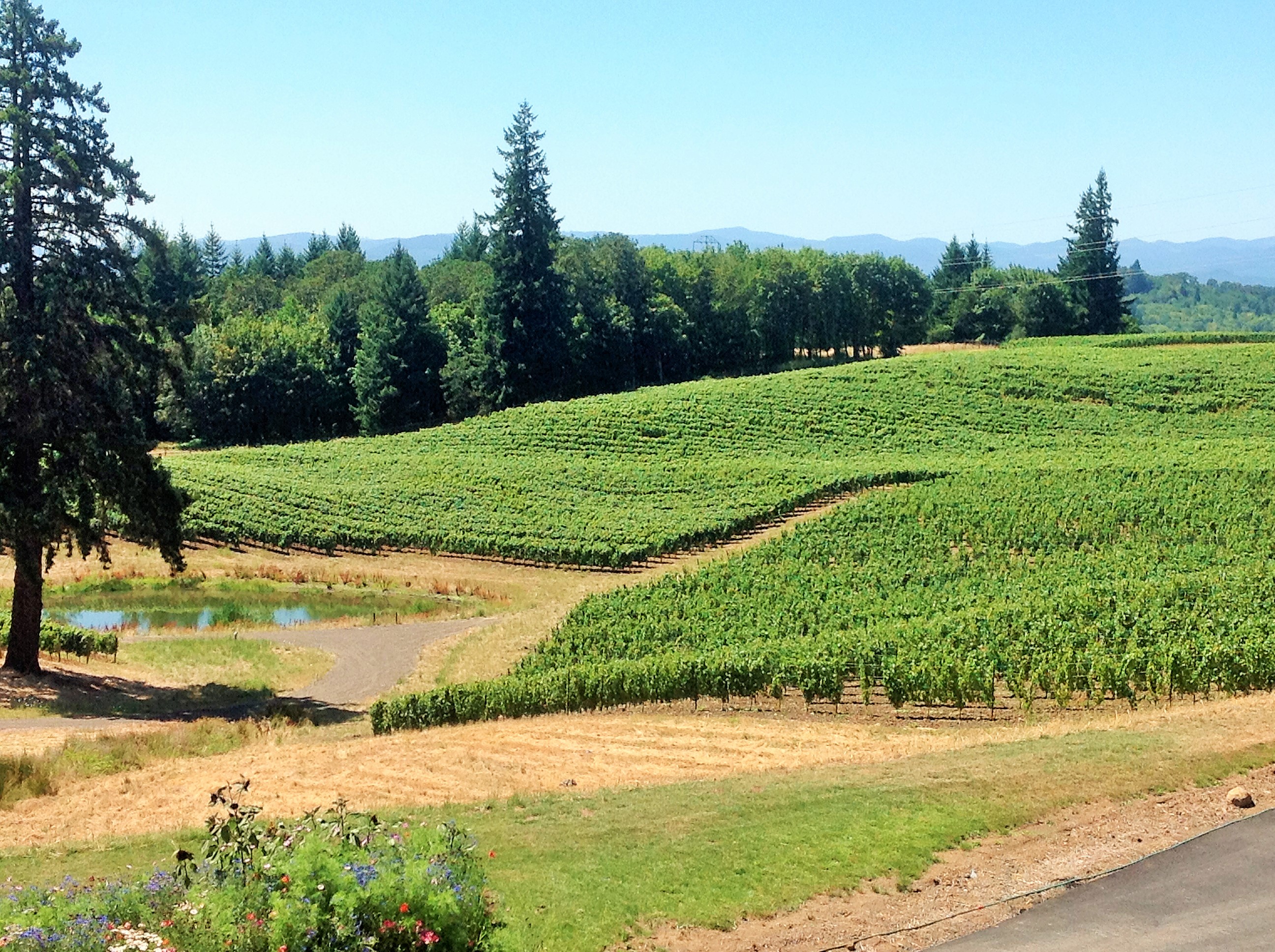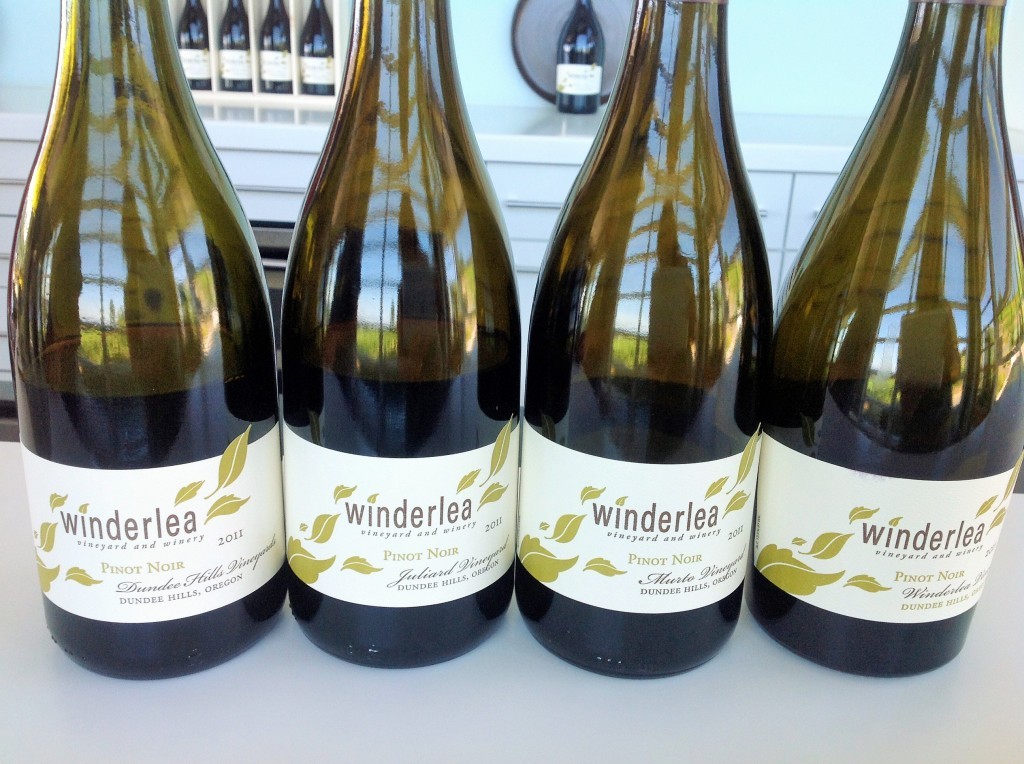Robert Brittan, despite being an enormously accomplished winemaker, is one of the most humble, self-deprecating people that I have ever met; a quality that I find entirely irresistible.


It’s worth noting that, while tending to some of Napa Valley’s top properties, Brittan also farmed his own vineyard; growing Chardonnay, Cabernet Sauvignon, Merlot and Syrah grapes that sold to A-list labels. He also produced small lots of Chardonnay and Pinot Noir under his own brand.
Robert dedicated the most significant portion of his wine career to Stags’ Leap; where he spent 16 years, taking it from a boutique esoteric brand to the 100,000 case star in now Beringer Group-owned portfolio. There Brittan meticulously worked on replanting huge acreage of vineyards. He led the restoration of their 19th Century estate winery and built a second facility. Tending to this mega brand’s every detail, he even created a successful resident artist program.
Replanting the vineyards was a gargantuan task that centered around the preservation of its distinct match of historic vines and terroir. To accomplish that, Brittan enlisted the help of Dr. Carol Meredith, who specializes in vine DNA profiling, to complement his own experience.Today, Robert Brittan is widely regarded as a top expert on clonal varietal selections and is a top matchmaker of clonal selections to sites.
In 2004, in an agonizing decision, Robert left Stags’ Leap and bought a 128 acre property southwest of McMinnville, Oregon. The vineyards features 300 ft elevation variances with fivedistinct soil types.
In addition to Brittan Vineyards he is also a consulting winemaker for Winderlea and Ayoub in the picturesque hills of Dundee.
By his own admission, during his long and distinguished career, he has achieved all that a winemaker can hope to accomplish. When Robert said that he is as good of a winemaker as it gets, I pondered it for a while. I knew it wasn’t an egotistical statement. The motive behind it was stating the fact, not self-aggrandizement. However, it wasn’t until I tasted Robert’s wines, that I understood the full measure of his profound, Midas-like touch.
He is refreshingly frank about the perils of wine production. Steve Doerner of Cristom once pointedly noted how wines are grown in the vineyard, but ruined in the cellar. Brittan spontaneously offered the same appraisal. He clearly feels that not every vintage holds up to extensive oak treatment; noting that the compulsion to give wine lots of new oak can be a self-defeating exercise. He believes that depth of flavor can be achieved by engaging the natural properties of the grapes, without defaulting into wood and tartaric acid.
The hallmark of Robert’s winemaking is his obvious unbridled passion for Pinot Noir; highlighting its sense of place, commonly referred to as “terroir,” in specific soils and microclimates.
2010 Basalt Block Pinot Noir
What can one say in the presence of greatness? Ultra sophisticated exotic spice and layered minerality is balanced by bright, persistent and elegant black and red fruit. Present, yet not overpowering tannins. Its beautiful finish seals the wine’s fate. Classic fruit and signature mineral notes that are deeply engaging. This ageworthy offering is likely to evolve for many years to come and will reveal multi-dimensional facets throughout its journey.
2011 Basalt Block
The Basalt lock Pinot Noir claims its name from the blocks of the vineyard with largest concentrations of broken basalt resulting in distinct wines. A reflection of the vintage, this wine is unapologetic and pure; featuring black and red fruit flavors, notes of tea, allspice, cumin, cinnamon and a faint hint of smoke. Lingering finish, uncommon most 2011s, betrays Robert’s enormous talent in coaxing the maximum from his grapes.
2010 Gestalt Block
The Gestalt Block Pinot Noir is planted to Dijon clones and is a show girl with heart of gold. I was quite taken by its seductive aromatics and bright acidity. Black and blue fruit fanned out on the palate like a gorgeous blanket of flavors. Somehow it managed to walk a tight rope between extraction and elegance. Amazing.
2011 Gestalt Block
Some wines land on your palate with a thud. Here, the opposite was true. A testimony of Robert’s cellar skills in a challenging vintage, this wine is lighter on its feet than the dreamy 2010, yet generously displays many similar characteristics representative of the site. Less extracted, yet laser focused; vibrant, with fine, classy tannins, medium finish.
Unwittingly, this legendary winemaker offered a precious gift. I became a writer to pursue my own dream, after years of denying it. Validating the “as good as it gets” factor is one of the most poignant things I’ve heard in a while. Thank you, Robert.
You can find Robert’s extraordinary wines at: http://brittanvineyards.com/











You must be logged in to post a comment.